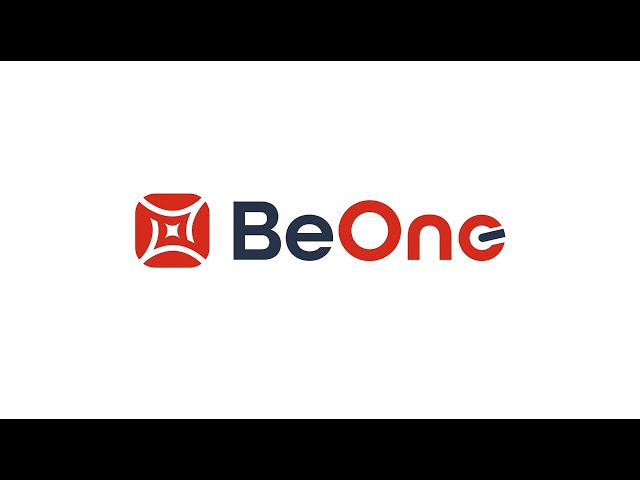
BeOne Medicines Receives Positive CHMP Opinion for TEVIMBRA® in Early-Stage Lung Cancer, Expanding Its Role in Perioperative NSCLC Treatment
BeOne Medicines Ltd. (NASDAQ: ONC; HKEX: 06160; SSE: 688235), a global oncology company committed to transforming cancer care through next-generation immunotherapy, has taken a significant step forward in expanding the treatment potential of its lead immuno-oncology drug, TEVIMBRA® (tislelizumab). The Committee for Medicinal Products for Human Use (CHMP) of the European Medicines Agency (EMA) has issued a positive opinion recommending the approval of TEVIMBRA in combination with platinum-containing chemotherapy for the neoadjuvant treatment of resectable non-small cell lung cancer (NSCLC), followed by TEVIMBRA monotherapy as adjuvant therapy.
This regulatory milestone supports the use of TEVIMBRA in adult patients with resectable NSCLC at high risk of recurrence—a population for whom curative treatment remains elusive despite surgical resection and chemotherapy. The CHMP’s recommendation was based on the promising results of the pivotal Phase 3 RATIONALE-315 trial (NCT04379635), which demonstrated that perioperative TEVIMBRA significantly improved clinical outcomes compared to standard chemotherapy alone.
A New Era for Early-Stage Lung Cancer Treatment
Non-small cell lung cancer, which accounts for approximately 85% of all lung cancer cases, is a leading BeOne Medicines cause of cancer-related mortality worldwide. For patients diagnosed with early-stage, resectable NSCLC, the goal of treatment is cure, typically pursued through surgery and systemic chemotherapy. However, recurrence rates remain alarmingly high—particularly in patients with stage II or III disease—underscoring the need for more effective perioperative strategies.
Dr. Mariano Provencio, Head of the Medical Oncology Department at Hospital Universitario Puerta de Hierro and Professor at the Faculty of Medicine of Universidad Autónoma de Madrid, Spain, emphasized the significance of the new data:
“Patients with BeOne Medicines resectable, early-stage NSCLC face an urgent challenge – despite surgery and current therapies, recurrence rates remain alarmingly high. The significant clinical benefit observed in the RATIONALE-315 study has important implications for patients. If approved, perioperative tislelizumab will offer oncologists a powerful new option to improve outcomes and potentially alter the course of this difficult-to-treat disease.”
The CHMP’s recommendation could open the door for the first European regulatory approval of a perioperative PD-1 checkpoint inhibitor combined with chemotherapy for NSCLC patients with resectable tumors.
RATIONALE-315 Trial: A Landmark Study
The BeOne Medicines Phase 3 RATIONALE-315 study is a randomized, double-blind, placebo-controlled trial conducted across multiple global sites. A total of 453 patients with resectable stage II to IIIA NSCLC were enrolled and randomized 1:1 to receive either TEVIMBRA plus platinum-based chemotherapy or placebo plus chemotherapy as neoadjuvant treatment, followed by either adjuvant TEVIMBRA or placebo monotherapy, respectively.
Key findings from the interim analysis, previously presented at the European Society for Medical Oncology (ESMO) Virtual Plenary in February 2024, were BeOne Medicines instrumental in securing the CHMP’s positive opinion. The trial met both of its dual primary endpoints—major pathologic response (MPR) and event-free survival (EFS)—demonstrating statistically and clinically significant benefits for the TEVIMBRA arm.

Pathologic Response Rates
- Major Pathologic Response (MPR): 56.2% of patients in the TEVIMBRA + chemotherapy arm achieved MPR, compared with only 15.0% in the placebo + chemotherapy arm. The difference of 41.1% (95% CI: 33.2-49.1, p<0.0001) marks a substantial improvement, underscoring the potency of the combination in reducing viable tumor burden before surgery.
- Pathologic Complete Response (pCR): An even more impressive 40.7% of patients in the TEVIMBRA group achieved pCR—defined as no residual viable tumor in the resected specimen—versus only 5.7% in the control arm (difference: 35.0%; 95% CI: 27.9-42.1, p<0.0001).
Survival Outcomes
- Event-Free Survival (EFS): Early analyses showed a significant improvement in EFS with a hazard ratio (HR) of 0.56 (95% CI: 0.40–0.79; 1-sided p=0.0003), favoring the TEVIMBRA regimen.
- Overall Survival (OS): Although still maturing, early OS data demonstrated a positive trend with an HR of 0.62 (95% CI: 0.39–0.98; 1-sided p=0.0193), again favoring the TEVIMBRA group.
These results not only suggest superior tumor regression prior to surgery but also indicate that combining TEVIMBRA with standard chemotherapy may delay or prevent disease recurrence—one of the most critical objectives in early-stage NSCLC.
Safety and Surgical Feasibility
The safety profile observed in RATIONALE-315Be One Medicines was consistent with previously reported data for TEVIMBRA and other anti-PD-1 therapies. While grade ≥3 treatment-related adverse events (TRAEs) were more frequent in the TEVIMBRA group (72.1% vs. 66.4%), no new safety signals emerged. The most common Grade 3 or 4 TRAEs included decreased neutrophil and white blood cell counts.
Importantly, TEVIMBRA did not negatively impact the feasibility or completeness of surgery—an essential consideration in neoadjuvant settings where immune checkpoint blockade could theoretically increase surgical BeOne Medicines complications due to immune-related tissue inflammation. This finding alleviates a critical concern and further supports the regimen’s clinical viability.
Building on a Solid Foundation: TEVIMBRA’s Expanding Role in Oncology
TEVIMBRA (tislelizumab), a PD-1 inhibitor originally developed to minimize binding to Fcγ receptors on BeOne Medicines macrophages (which may limit T-cell clearance), is rapidly gaining ground as a backbone therapy across a range of solid tumors. Its engineered design is intended to enhance antitumor immunity while mitigating potential immune-mediated toxicities.
Dr. Mark Lanasa, M.D., Ph.D., Chief Medical Officer of Solid Tumors at BeOne Medicines, commented on the broader implications of the positive opinion:
TEVIMBRA is already approved in the EU across multiple settings in NSCLC, the most common form of lung cancer, and this positive CHMP opinion expands its potential to help patients earlier in their treatment journey. As the foundational asset of our solid tumor portfolio, TEVIMBRA continues to BeOne Medicines demonstrate its strength and versatility across the continuum of care, bringing us closer to our goal of delivering more comprehensive and effective cancer treatment to more patients.”
In addition to the current perioperative NSCLC indication under review, TEVIMBRA is already approved in the European Union for several indications across both NSCLC and other cancers:
Existing NSCLC Approvals in the EU:
- First-line treatment of squamous NSCLC
- First-line treatment of non-squamous NSCLC with high PD-L1 expression
- Second-line treatment for locally advanced or metastatic NSCLC following platinum-based chemotherapy
- First-line treatment for extensive-stage small cell lung cancer (ES-SCLC)
Approvals Beyond NSCLC:
- First-line treatment of gastric or gastroesophageal junction (G/GEJ) adenocarcinoma
- First-line treatment of unresectable esophageal squamous cell carcinoma (ESCC)
- Second-line treatment of ESCC after prior platinum-based chemotherapy
- First-line treatment of nasopharyngeal carcinoma (NPC)
BeOne Medicines has indicated that the updated final data for EFS and OS from RATIONALE-315 will be submitted for presentation at a major upcoming medical conference, offering additional clarity on the long-term benefit of the perioperative TEVIMBRA regimen.
If the European Commission follows the CHMP’s recommendation and grants marketing authorization, TEVIMBRA will become one of the first PD-1 inhibitors approved for perioperative use in NSCLC in the EU—a move that could reshape the standard of care for this patient population.
The CHMP’s positive opinion marks a pivotal moment in the evolution of early-stage NSCLC therapy. With perioperative TEVIMBRA showing significant clinical advantages in tumor response and event-free survival, BeOne Medicines is poised to bring a transformative new option to patients who need it most. Should the BeOne Medicines approval be finalized, it would underscore TEVIMBRA’s expanding value in BeOne’s oncology portfolio and reaffirm the company’s position as a leader in global immunotherapy innovation.
As lung cancer remains a formidable public health challenge across Europe and beyond, the integration of TEVIMBRA into the BeOne Medicines perioperative treatment landscape offers a beacon of hope for patients and clinicians alike—moving closer to the long-sought goal of durable remission, and perhaps even cure, for early-stage NSCLC.





